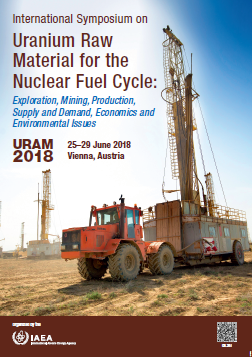Speaker
Dr
Santosh Kumar Satpati
(Bhabha Atomic Research Centre, Mumbai, India)
Description
Uranium production plant of India has been assigned to produce uranium metal for different important requirements of nation. In the plant, di-uranates / other oxides are processed through several unit operations to produce uranium metal where three process effluents are generated in tonnage quantity. Among the three effluents, two are nitrate bearing radioactive wastes [Effluents (N)] and another is fluoride bearing radioactive effluent [Effluent (F)]. With time, waste disposal norms and regulations are becoming more stringent. In response to the stipulation, efforts have been put to develop suitable methodology for recycling the wastes and also for polishing the generated wastes making suitable for disposal. Suitable technologies have been developed to treat and recycle the effluents (N) and reduction of waste generation has been demonstrated for reuse in the same plant.Developed technology has been utilised to treat the fluoride effluent (F) and zero discharge principle has been achieved. Developmental study describing treatment and recycle of ammonium nitrate waste generated in ammonium diuranate precipitation process is challenging. This presentation will describe the insight of these developmental studies and also demonstrate up-gradation of uranium metal production technology of India with waste recycle schemes.
| Country or International Organization | INDIA |
|---|
Author
Dr
Santosh Kumar Satpati
(Bhabha Atomic Research Centre, Mumbai, India)
Co-author
Mr
M L Sahu
(Bhabha Atomic Research Centre, Mumbai, India)

